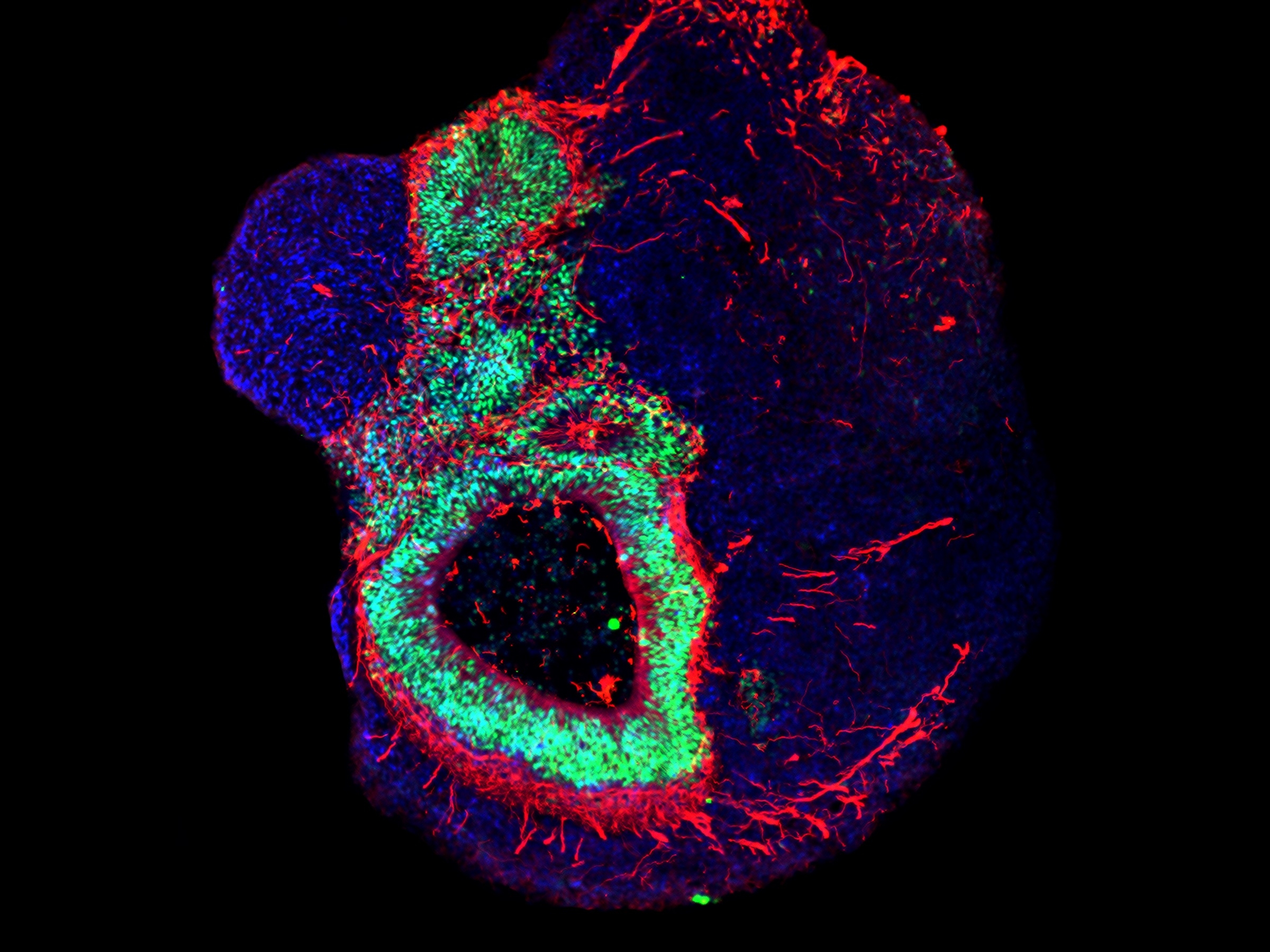A new European research consortium named "TimeLife" wants to use cell cultures to detect diseases at an early stage in order to develop precise therapeutic strategies. The 120 participating European scientists will initially receive one million euros from the European Union for a period of one year to work out a detailed plan.
Using organ-like systems (organoids) from the patient's own stem cells the researchers want to develop personalised disease models and carry out individual cell analyses. Gene modifications using CRISPR technology as well as imaging techniques will also be used to investigate how cells remain healthy, change over the course of a lifetime, become ill and react to drugs. The large amounts of data from high-throughput investigations require computer-assisted strategies for data analysis and pattern recognition when changing the cells studied. The data will serve as the basis for mathematical modelling.

With the help of mini organs - such as brain organoids in this case - the techniques of single cell analysis can also be applied to human tissue.
Photo: Agnieszka Rybak Wolf, working group of Nikolaus Rajewsky at BIMSB / MDC
In the project consortium, scientists from 50 institutions from various disciplines such as biology, medicine, physics, computer science and mathematics, but also social sciences, ethics and economics will work together. Through a survey in advance, the researchers want to respond to the needs of society and expect a substantial contribution to the pharmaceutical, biotechnology and data-processing industries at the end.
The runtime of TimeLife is 10 years. The consortium is coordinated by the Max Delbrück Center in Berlin together with the Institut Curie in Paris.
Source:
https://idw-online.de/de/news708893




 Dr. rer. nat.
Dr. rer. nat. Menschen für Tierrechte - Tierversuchsgegner Rheinland-Pfalz e.V.
Menschen für Tierrechte - Tierversuchsgegner Rheinland-Pfalz e.V.